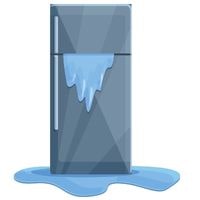GE refrigerator troubleshooting. GE refrigerators are known for their quality and reliability. Repairing an appliance is an investment, and when they malfunction, it can seem like the greatest dilemma in the world.
However, with today’s technological advances, even old appliances can be brought back to life and working once again. Fixing a GE refrigerator is fairly easy, and before you know it you will be able to make food and drinks cold or hot whichever your preference.
GE refrigerator troubleshooting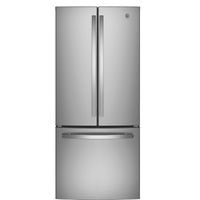
We all know the feeling of not knowing what to do when there’s no more ice in our freezer. While certain symptoms may cause concern, don’t get too alarmed.
Every GE refrigerator owner eventually runs into some problem or another, so here is a handy GE refrigerator troubleshooting guide to help you if that ever happens to you.
Ice and water dispenser problems
Make sure the hose for the water supply is properly connected to the backside of the refrigerator, and make sure it’s not kinked or twisted in any way.
If there is no water, water may be leaking out somewhere in the back. Make sure all connections look good and that there are not any loose parts in the line.
You should also check that water is being turned on in order to ensure that both sides are receiving equal amounts of ice-making capabilities.
Power Supply Issue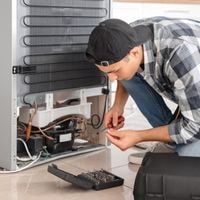
Whenever you’re having trouble with your GE refrigerator, the first step would be to turn off the device and unplug it.
Now, if you haven’t used your fridge for a while (one or more months, say), chances are that the power supply is the culprit and should be replaced.
The power supply is what keeps your device running and it’s also what causes most of your GE refrigerator issues. So if the power supply is damaged, you will need to replace it as soon as possible.
Problems with Lights and Gaskets
If the light in your refrigerator is not going on, your first thought might be that it’s short. But let’s not rule out a burnt-out bulb yet. It’s more likely that the bulb has burned out.
Therefore, you need to purchase another appliance bulb from another company called GE. To order bulbs, consult the proper section of your owner’s manual.
If the refrigerator does not seem cold enough or if there are problems with doors or if there is a constant “door open” beeping alert sounding, you should look at gaskets on both sides of the refrigerator doors and make sure they aren’t torn and fixed correctly with no damaged parts.
Over time, they can become damaged but without a proper seal around the edge of the door corners, shaking and moving will occur and your appliance won’t be as energy efficient as it could’ve been had you fixed these right then and there.
Water leakage issue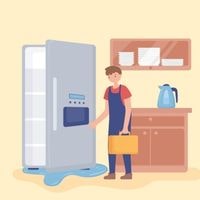
Water leaking in your fridge is one of the most common problems. If you find that you are experiencing dripping or leaking, chances are something has gone wrong with the coils.
Condensing coils are located at the back of your appliance and usually consist of copper tubing wound around aluminum fins to help with heat transfer.
Copper is a great conductor of heat, which makes it great for this application.
However, lack of maintenance can eventually wear out the coils causing them to break down and no longer work properly.
You can easily tell when condensing coils have become brittle because they will most likely have tiny cracks in them. A quality set of replacement parts can be found at home improvement stores.
Faulty temperature sensor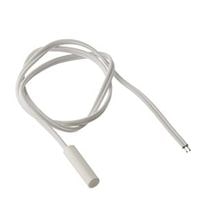
A temperature sensor is one of many components that are found inside a refrigerator. The sensor functions by giving off an output signal to the control board, which then regulates the speed of the cooling elements of the refrigerator.
If there is something wrong with this sensor, it can lead to the refrigerator being too cold or warm, or not working at all.
You may want to get an expert opinion on this issue, but if you feel comfortable enough, you may go ahead and attempt to test out the sensor yourself before reaching out to anyone else for help.
Defective Water Pump
Refrigerator water pumps are mainly used to keep up the levels of moisture inside your fridge because these parts can lead to bacterial growth, which is known as mildew.
Having a pump installed within your fridge allows for additional layers of moisture which can help deter bacteria from growing and harmful odors that could come into contact with your food items and cause health issues.
If you suspect that your refrigerator’s water pump might not be working properly it’s advised that you don’t attempt to fix it yourself because without the backing of an experienced professional, one has no idea what they’re actually dealing with.
GE Fridge is making loud noises
If you hear rattling and the sound of something dropping every so often, this might not be a significant issue, but it’s important to consider that it might mean something’s wrong inside the fridge. There could be a loose connection that needs repair.
GE Refrigerator won’t defrost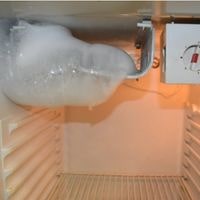
The defrost control board is integral to the process of taking care of the inside of your refrigerator. If it were to malfunction during operation, one thing that would likely happen is the fridge would not be able to effectively make use of its integrated thermostat.
Before you go about replacing this piece of important equipment, however, it first might be a good idea for you to make sure that both your defrost heater and thermostat are properly aligned with what’s on the instructions manual.
With these two pieces of equipment working fully effectively as they’re meant to work throughout their specified capacity, there’s an even greater chance that the control board itself is faulty or at least not functioning properly.
Conclusion
At last, there are some of the most common problems GE refrigerators face. Well, if you notice any of these problems try to address them before they get out of hand.
Hopefully, this list will help point out what’s causing your fridge to break down and allow you to troubleshoot the problem with ease.
If you’re still having trouble diagnosing the cause of your refrigerator’s malfunctions, leave us a comment below.
GE refrigerator troubleshooting
Related Guides
